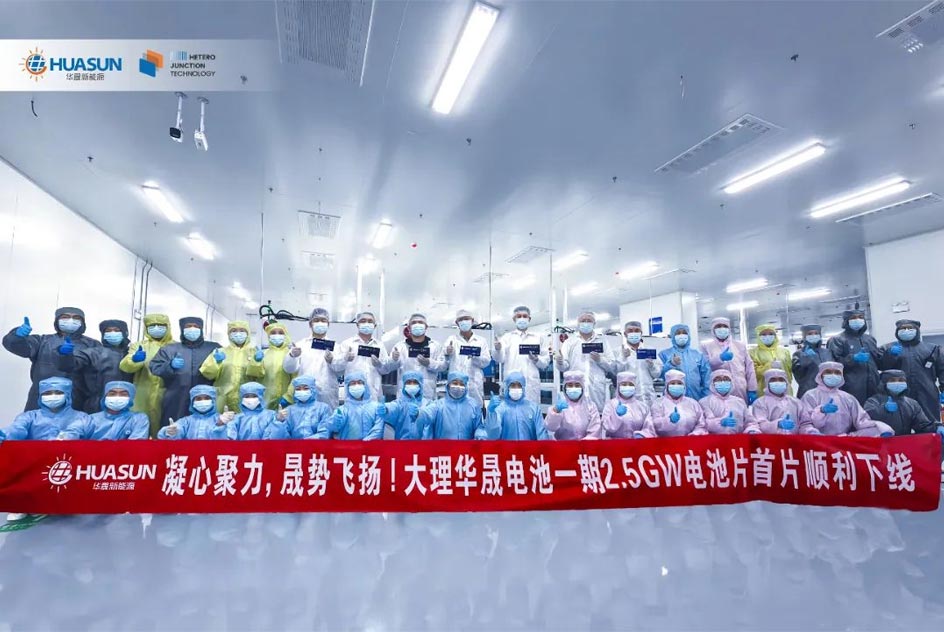en
Huasun Dali 2.5GW Phase I HJT Cell Project was fully completed on September 6th, and the first batch of 210mm heterojunction (HJT) solar cells was successfully produced. With an average efficiency of 25.23% and a maximum of 25.69%, the cells once again set a record for Huasun's mass production HJT cell projects.

The project is located in a climate zone characterized by the low-latitude plateau monsoons and an elevation of 2,000 meters. Thanks to the double-sided micro-crystalline process and silver-copper paste technology, the HJT solar cells can performance exceptionally well even in harsh environments such as high altitude and high ultraviolet rays.
Further cost savings will be achieved through optimization of HJT solar technology. Huasun is expected to achieve an average efficiency of 25.5% in mass production, setting a benchmark for heterojunction technology and the wider photovoltaic industry.
Xu Xiaohua, Chairman of Huasun said at the launching ceremony, "I hope that Hausun will continue to stay ahead of the game, and endeavour to make the Dali base the most advanced photovoltaic factory in Southwest China, soaring like an eagle over the Cangshan Mountains and the Erhai Lake."

Xu Xiaohua signed on the first cell produced in the Dali project for memory.
The 210mm HJT cells mainly produced by Huasun Dali project guarantee a higher efficiency for the supporting solar module projects, which aim to gradually achieve the average power output of 720W+. Huasun is committed to providing various high-efficiency HJT solar products to Yunnan, Southeast Tibet and Mekong River region, and contributing to the reduced LCOE and increased IRR for large-scale utility solar power projects in neighbouring areas.